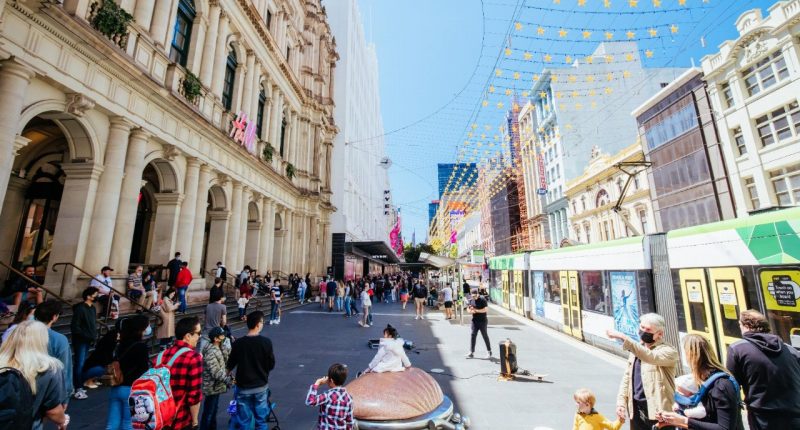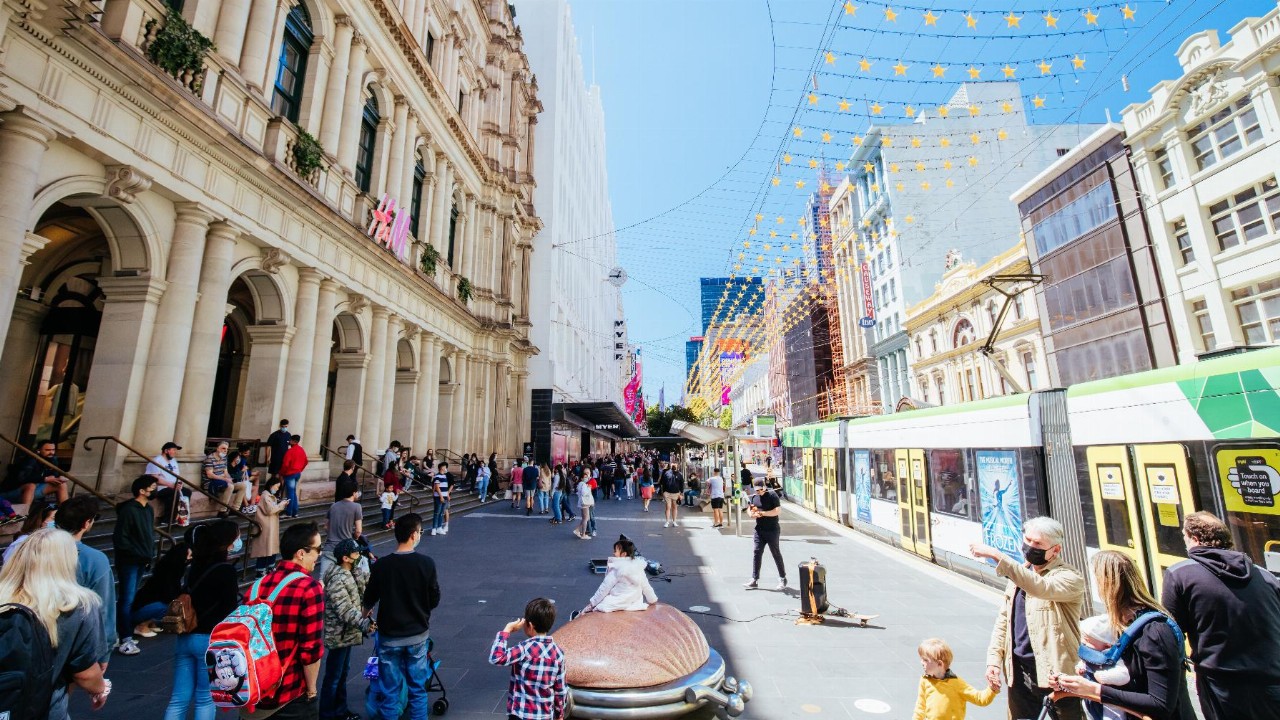- The Australian economy is expected to avoid an Omicron-induced downturn, according to Deloitte, as boosters tip the scales in the tug-of-war between vaccinations and mutations
- The latest Deloitte Access Economics Business Outlook report predicts “the good outweighs the bad” for the Australian economy over the 2022 calendar year
- Despite a bleaker outlook for the global economy, Australia’s strong government support and high vaccination rate puts it in a healthy place even as Omicron spreads
- Most states are forecast to overtake South Australia and Tasmania in economic growth over the year, while future government budgets may be in for some trouble
- On an industry level, the farming, finance, health and public sectors should remain strong, while supply snarls continue to impact distribution, retail and supermarkets
The Australian economy is expected to avoid an Omicron-induced downturn, according to Deloitte, as boosters help tip the scales in the tug-of-war between vaccinations and mutations.
The latest Deloitte Access Economics Business Outlook report, released this week, pits boosters against the Omicron variant of COVID-19, but ultimately predicts that “the good outweighs the bad” for the Australian economy.
While the outlook is perhaps not as cheery for the global economy just yet, Deloitte’s report said Australia’s booster rates were building sufficiently to keep COVID deaths low enough to avoid “lengthy or large scale” lockdowns, as some states have seen over the past two years.
Compounding this are increasing COVID-19 treatments to make things safer for those who contract the virus.
Further, Deloitte predicts migrant, student and tourist numbers to ascend throughout 2022 and return to pre-pandemic rates in a year or two thereafter.
“Australia is now much more match-fit for fighting COVID,” principal report author Chris Richardson said.
“We’re well-vaccinated, we’ve got the hang of juggling lockdowns and other COVID challenges, and we’re cashed up on dollars from when the pandemic meant that money could not be readily spent.
“That combination spells resilience and recovery.”
Still, Deloitte pointed to a sharp economic downturn in China and signs the global recovery is topping out as evidence that it may not be all smooth-sailing despite Australia’s strong position.
“But Omicron has gone vertical, and it won’t be the last mutation for us to fight,” the report said.
“China’s economy has softened in ways that particularly challenge us. And the markets wrested control of the cost of money away from the RBA, notably raising the cost of two- and three-year fixed-rate loans at a time when borrowings have leapt.”
Inflation has been a key talking point over the past several months among both consumers and investors as supply chain woes give businesses major pricing power. This has been a particular concern for the United States.
Nevertheless, Deloitte’s report said Australia’s inflation risks aren’t quite as severe. With prices having so far grown faster than wages, inflation will naturally begin to ease unless wage gains accelerate “a lot”, which is unlikely.
Importantly, with Australia currently only recording major price increases for a narrow range of products, the Reserve Bank has enough time to react should inflation rise faster and hang around longer than anticipated, as seen in the States.
Strong job performance amid higher government costs
Deloitte said while a lack of migrant workers has certainly played a part in Australia’s booming jobs market, the key driver of Australia’s “exuberant job rebounds” has been government and Reserve Bank support.
However, Deloitte predicts that part of the payoff for this support will be “trouble” for Federal and state budgets.
“While we were glued to our daily dose of the Gladys and Dan show, the cost of running Australia rose,” Mr Richardson said.
With billions more to be spent on social services and political and geopolitical tensions calling for increased defence costs, Deloitte predicts the federal budget will settle at ongoing annual deficits of over 3 per cent of national income.
States and industries
Looking at forecast economic growth on a state-by-state basis, Deloitte’s latest predictions look very different to its October 2021 forecast for the 2022 financial year.
Deloitte previously predicted South Australia and Tasmania to enjoy the best economic growth over the 2022 financial year thanks to minimal COVID impact in these states.
It seems for the 2022 calendar year, however, New South Wales looks to overtake these states and grow its economy by 5.2 per cent — a “reopening rebound”, as Deloitte put it.
The Queensland and WA economies are each predicted to grow by 3 per cent, with Tasmania — which has been the poster child for mid-pandemic economic success in Australia — forecast to grow by 2.8 per cent over 2022. South Australia is tipped to grow by 1.6 per cent in 2022.
For reference, Deloitte’s 2021-2022 financial year prediction pegged South Australia’s and Tasmania’s economic growth 3.6 per cent.
On an industry level, Deloitte said farmers are looking at another strong performance on the back of another year of record harvests.
Meanwhile, the public and finance sectors will stay strong in 2022 because they’ll “need to” as they fight alongside the health industry to keep Australia strong.
Trucking and distribution, supermarkets, and retail are each set to face ongoing battles, however. Deloitte said the pain for these industries was “probably” temporary, but it was “huge”.







